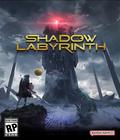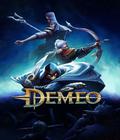Anyone who's into pen-and-paper RPGs or board games has probably had a rough year. There are online counterparts where one can game with their friends in a socially distanced manner, but that is rarely the same experience. It's surprising how long it took for a developer to provide a robust and fun tabletop RPG experience in VR. It's been done before, but it rarely works as well as one would like. Demeo is the first game where early trailers suggested it may bridge the gap between a tabletop RPG and simulating the feel of being in a room with a couple of friends with miniatures and dice. I have spent several hours with Demeo on Quest 2 (also releasing for Steam VR and a Rift version is soon to follow), and I am thoroughly impressed by its concept and execution, even though the content has some areas for improvement.
Demeo provides a turn-based, dungeon-crawler experience for up to four players to tackle different adventures together. Most of Demeo works well, but only the first book, "The Black Sarcophagus," is currently available. More content is coming, with the second book scheduled for this summer in what looks to be a free update. It's unknown how frequently the game will receive content updates and whether they'll be free or paid going forward. The current content is limited; there's a single adventure with three dungeon levels, the latter of which contains the boss fight. The dungeons are randomly generated, so they provide some variety, even though some elements repeat often, so new content is needed for the game to continue to be fun and successful.
At the start of each campaign, players choose one of four characters: archer, guardian, mage or thief. The group enters the dungeon and moves in a turn-based manner, with two action points each to either move or attack. Progress within the dungeons involves getting the keys to the exit and locating the exit. Due to dungeons being randomized and hidden unless you explore, each round can play out quite differently. The game guides you toward points of interest, which may be chests, fountains, or the much-needed exit. This ensures you always know where to go on the map until you eventually find your way out — provided you have slain the monster that has the exit key.
Movement in VR is usually the trickiest thing to nail, and Demeo does an excellent job. The human players stand around the table and can use their hands to drag themselves to wherever they want to go for a better look at the action. It's also easy to zoom in and out in any situation, even close enough to practically stand behind your own minion, which is remarkable and helps during gameplay, even — or especially! — when it's not your turn. You can move your character forward for the number of spaces they can take in one go or on top of enemies for a basic attack. Every attack also comes with a dice roll, which determines if your attack is a hit, critical hit, or a miss that may damage someone else, your party included. There are many more specific attacks and skills that your hero can deploy to diminish dungeon creatures to specks of dust.
Demeo adds cards into the mix. Each player has a set of cards that's summoned by standing with the palm of your hand facing up. Cards cost action points and can be used as long as enough points are left in your turn. Those cards may let you summon a ballistic turret or elemental lamps that explode on impact. Some cards are specific to your character class, like the stealth ability for the thief or magic spells for the mage.
The available cards at launch provide a good amount of variety and utility. Some may let you see ahead to plan your moves; others may heal or make an enemy focus on you. Chances are that you'll see most of the available cards within a few runs, but I suspect that further expansions will add more cards to the mix. The combat is not easy, especially when you're not in a full party, but it can lack depth. Status effects can stack, but there is not much interaction between status effects and cards, so there won't be card combos, as would be the case for many deck-building games. It's challenging as-is and not necessarily needed, but I hope that future updates may introduce a few more abilities that require multiple cards for extra damage.
While the game is focused on co-op online play, Demeo can be played offline in Skirmish mode. You'll pick a main character and two support characters and attempt a dungeon run alone, controlling all three with a single hand of cards. I found this mode more difficult compared to playing with friends or even strangers online, but it is manageable. I joined strangers for a full lobby playthrough and a friend for a two-player session, and both scenarios worked great. The title supports voice chat in-game, which is essential to plan moves with your party depending on your position, enemies, and which cards each player holds. The ability to pick up elements within the dungeon, such as traps and enemies, enables you to communicate with your party about how to progress. It's a magical experience to see a tabletop game with others come to life before your eyes, including explosions and magic effects. It reminds me of the long-forgotten PS3 game, The Eye of Judgment, and that simple concept was amazing for its time.
Demeo does what it sets out to do, and it does it well with minimal drawbacks. Even on the Quest 2, Demeo runs well and features ample detail in its environments and figurines. The game may put strain on your neck since you'll find yourself looking down at a table most of the time. You can tilt the table to be able to look forward while playing, but this often made it more nauseating to play, so I quickly reverted to punishing my neck muscles.
Aside from its currently bare-bones content offering, Demeo also lacks a lot of features that are either mandatory or nice to have for its longevity. At the moment, you cannot save the game during a session. Since a dungeon run can sometimes take two hours, it's almost ridiculous to not have a save option, especially when you consider that the average Quest 2 battery runtime is 2-3 hours — and don't forget the potential neck pain. It'd also be nice to see some sort of level editor or Game Master mode for additional challenge and variety. Once you've beaten the currently available adventure once or twice, you'll likely have no more to see. There is a linear progression system that earns new skins for the characters and dice as you attempt new runs, but that's largely it.
Demeo is a remarkable concept that works incredibly well on the Quest 2. Its lack of content and essential features holds it back. Not counting any repeated playthroughs or attempts, you'll likely see everything there is to see in a couple of hours. While new and potentially free content is on the horizon, the current price of $30 feels a touch steep. When Demeo adds some essential features, like a level editor or a save function, and some more dungeons, it could become one of the go-to VR experiences for RPG fans. It hasn't reached that lofty goal yet, though.
Score: 7.0/10
More articles about Demeo













 Demeo is an RPG dungeon crawler in virtual reality, where a A dark force has taken over the underworld.
Demeo is an RPG dungeon crawler in virtual reality, where a A dark force has taken over the underworld.



